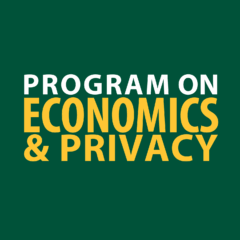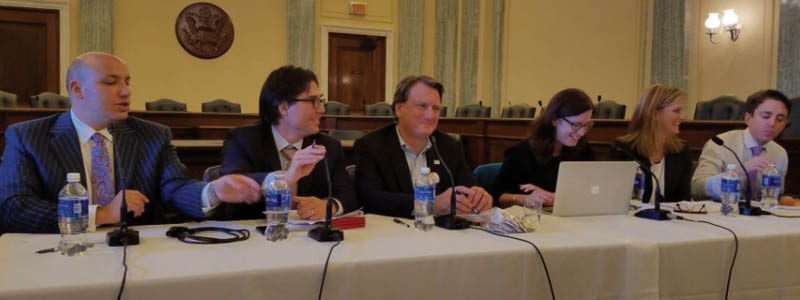George Mason University Antonin Scalia Law School
Program on Economics & Privacy
Third Annual Digital Information Policy Scholars Conference
April 27, 2018
Antonin Scalia Law School at George Mason University, Arlington, VA
The Program on Economics & Privacy (PEP) at Antonin Scalia Law School will host a scholars conference on the economics of digital information policy on April 27, 2018. The conference will be open to the public.
The mission of PEP is to promote the sound application of economic analysis to issues surrounding the digital information economy through original research, policy outreach, and education. The annual Digital Information Policy Scholars Conference is intended to further this goal by providing a forum to present original research on this important area of the US economy.
Topics:
Topics of interest include, but are not limited to:
-
-
- Consumer valuation of privacy
- Markets for privacy
- The impact of state and federal privacy & data security regulation on consumers and firms
- The GDPR and other European privacy regulations
- Private litigation under state and federal privacy and data security laws
- Liability issues surrounding the Internet of Things
- The use of big data for consumers scoring
- The intersection of privacy and competition policy
- Competition policy and Internet platforms
- Student privacy
- Consumer responses to disclosures
- Privacy and data security issues surrounding biometrics
Submissions:
Please send your paper or abstract by February 19, 2018, to Jeff T. Smith, Coordinator of PEP, at [email protected]. Preference will be given to completed papers. The selection committee includes Alessandro Acquisti (Carnegie Mellon), Jane Bambauer (University of Arizona, James E. Rogers College of Law), Michael Baye (Indiana University, Kelley School of Business), James Cooper (George Mason University Antonin Scalia Law School), Sasha Romanosky (RAND), Andrew Stivers (Federal Trade Commission), and Catherine Tucker (MIT, Sloan School of Management). Selections will be made by March 5, 2018.
Selected authors will receive a $300 honorarium and will be provided lodging for the night of April 26, 2018. There will be a dinner for participants on April 26. Selected authors will be responsible for submitting a final version of their paper by April 13, 2017. In addition to presenting their paper, selected authors will be expected to serve as a discussant for one paper at the conference.
-


